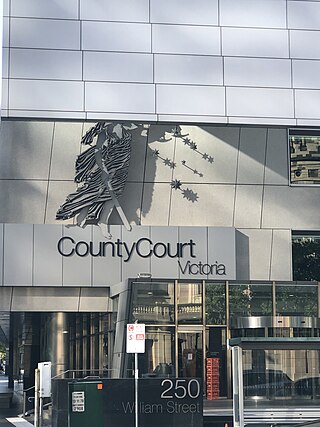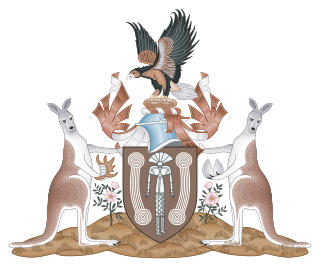
An assault is the illegal act of causing physical harm or unwanted physical contact to another person, or, in some legal definitions, the threat or attempt to do so. It is both a crime and a tort and, therefore, may result in criminal prosecution, civil liability, or both. Additionally, assault is a criminal act in which a person intentionally causes fear of physical harm or offensive contact to another person. Assault can be committed with or without a weapon and can range from physical violence to threats of violence. Assault is frequently referred to as an attempt to commit battery, which is the deliberate use of physical force against another person. The deliberate inflicting of fear, apprehension, or terror is another definition of assault that can be found in several legal systems. Depending on the severity of the offense, assault may result in a fine, imprisonment, or even death.

In many common law jurisdictions, an indictable offence is an offence which can only be tried on an indictment after a preliminary hearing to determine whether there is a prima facie case to answer or by a grand jury. A similar concept in the United States is known as a felony, which for federal crimes, also requires an indictment. In Scotland, which is a hybrid common law jurisdiction, the procurator fiscal will commence solemn proceedings for serious crimes to be prosecuted on indictment before a jury.

A jury trial, or trial by jury, is a legal proceeding in which a jury makes a decision or findings of fact. It is distinguished from a bench trial in which a judge or panel of judges makes all decisions.
A misdemeanor is any "lesser" criminal act in some common law legal systems. Misdemeanors are generally punished less severely than more serious felonies, but theoretically more so than administrative infractions and regulatory offences. Typically, misdemeanors are punished with prison time of no longer than one year, monetary fines, or community service.
A statute of limitations, known in civil law systems as a prescriptive period, is a law passed by a legislative body to set the maximum time after an event within which legal proceedings may be initiated. In most jurisdictions, such periods exist for both criminal law and civil law such as contract law and property law, though often under different names and with varying details.

A summary offence or petty offence is a violation in some common law jurisdictions that can be proceeded against summarily, without the right to a jury trial and/or indictment.
The Courts of England and Wales, supported administratively by His Majesty's Courts and Tribunals Service, are the civil and criminal courts responsible for the administration of justice in England and Wales.
A citizen's arrest is an arrest made by a private citizen – a person who is not acting as a sworn law-enforcement official. In common law jurisdictions, the practice dates back to medieval England and the English common law, in which sheriffs encouraged ordinary citizens to help apprehend law breakers.
A hybrid offence, dual offence, Crown option offence, dual procedure offence, offence triable either way, or wobbler is one of the special class offences in the common law jurisdictions where the case may be prosecuted either summarily or on indictment. In the United States, an alternative misdemeanor/felony offense lists both county jail and state prison as possible punishment, for example, theft. Similarly, a wobblette is a crime that can be charged either as a misdemeanor or an infraction, for example, in California, violating COVID-19 safety precautions.

The Magistrates' Court of Victoria is the lowest court in the Australian state of Victoria.

In England and Wales, a magistrates' court is a lower court which hears matters relating to summary offences and some triable either-way matters. Some civil law issues are also decided here, notably family proceedings. In 2010, there were 320 magistrates' courts in England and Wales; by 2020, a decade later, 164 of those had closed. The jurisdiction of magistrates' courts and rules governing them are set out in the Magistrates' Courts Act 1980.

In law, a committal procedure is the process by which a defendant is charged with a serious offence under the criminal justice systems of all common law jurisdictions except the United States. The committal procedure replaces the earlier grand jury process.

The County Court of Victoria is the intermediate court in the Australian state of Victoria. It is equivalent to district courts in the other states.

The criminal law of Australia is the body of law in Australia that relates to crime.

The Magistrates Court of South Australia is the lowest level court in the state of South Australia. The Magistrates Court, then known as the Court of Petty Sessions, was established in 1837, by the Court of Sessions Act 1837. It has both original and appellate jurisdiction and hears matters specified in the Magistrates Court Act 1991 (SA).

The Local Court of the Northern Territory is one of two levels of court in the Northern Territory of Australia. It has jurisdiction in civil disputes up to A$250,000, and in criminal cases in the trial of summary offences, and also deals with preliminary matters for indictable offences which are then heard by the Supreme Court of the Northern Territory. There are local courts held in Darwin, Alice Springs, Katherine, Tennant Creek, and some "bush courts" in remote locations.

The Children's Court of Queensland is a specialized court in Queensland, a state of Australia which deals with serious crimes committed by children under the age of seventeen years in the state.

Sir John Jervis, PC was an English lawyer, law reformer and Attorney General in the administration of Lord John Russell. He subsequently became a judge and enjoyed a career as a robust but intelligent and innovative jurist, a career cut short by his early and sudden death.
Common law offences are crimes under English criminal law, the related criminal law of some Commonwealth countries, and under some U.S. state laws. They are offences under the common law, developed entirely by the law courts, having no specific basis in statute.
Aiding and abetting is a legal doctrine related to the guilt of someone who aids or abets another person in the commission of a crime. It exists in a number of different countries and generally allows a court to pronounce someone guilty for aiding and abetting in a crime even if he or she is not the principal offender. The words aiding, abetting and accessory are closely used but have differences. While aiding means providing support or assistance to someone, abetting means encouraging someone else to commit a crime. Accessory is someone who in fact assists "commission of a crime committed primarily by someone else". However, some jurisdictions have merged being an accessory before the fact with aiding and abetting.











